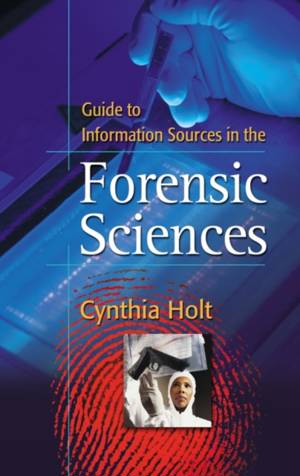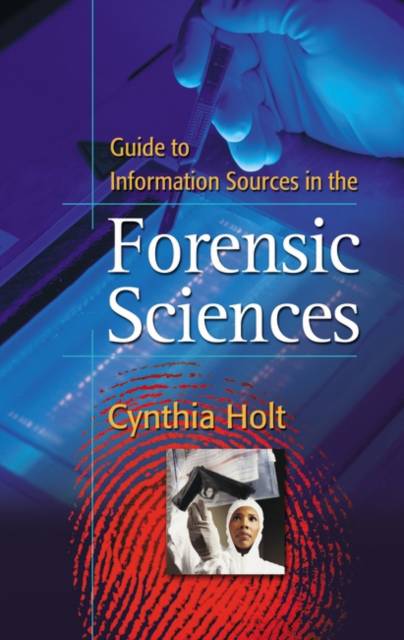
Je cadeautjes zeker op tijd in huis hebben voor de feestdagen? Kom langs in onze winkels en vind het perfecte geschenk!
- Afhalen na 1 uur in een winkel met voorraad
- Gratis thuislevering in België vanaf € 30
- Ruim aanbod met 7 miljoen producten
Je cadeautjes zeker op tijd in huis hebben voor de feestdagen? Kom langs in onze winkels en vind het perfecte geschenk!
- Afhalen na 1 uur in een winkel met voorraad
- Gratis thuislevering in België vanaf € 30
- Ruim aanbod met 7 miljoen producten
Zoeken
Omschrijving
Thanks to the O. J. Simpson case, not to mention the overwhelming success of the CSI franchise, the general public is both aware of and curious about the world of forensics, i.e., the investigation and establisment of facts or evidence in a court of law. The forensic sciences incorporate the application of principles and methods from a cadre of specialized scientific and technical disciplines, to a vast array of criminal and civil legal questions. To this end, Cynthia Holt has compiled a comprehensive bibliography of resources recommended to support research in the forensic sciences and its various subspecialties. Holt's introductory chapter clarifies the distinctions between the major forensic sciences specialties; in addition, it provides an overview of the hierarchy of various classification systems for the forensics literature. The bibliography itself is grouped by type of material (e.g., journals, abstracts and indexes, books). Topics include ballistics, DNA analysis, etymology, expert witnessing, and facial imaging/reconstruction, as well as contributions from academic fields such as anthropology, linguistics and engineering. Tools are primarily in English, with a few non-English titles included for reasons of significance. With a preface by Professor Moses S. Schanfield, Chair of the Department of Forensic Sciences at George Washington University.
Specificaties
Betrokkenen
- Auteur(s):
- Uitgeverij:
Inhoud
- Aantal bladzijden:
- 216
- Taal:
- Engels
- Reeks:
Eigenschappen
- Productcode (EAN):
- 9781591582212
- Verschijningsdatum:
- 1/12/2005
- Uitvoering:
- Hardcover
- Formaat:
- Ongenaaid / garenloos gebonden
- Afmetingen:
- 161 mm x 244 mm
- Gewicht:
- 462 g

Alleen bij Standaard Boekhandel
+ 332 punten op je klantenkaart van Standaard Boekhandel
Beoordelingen
We publiceren alleen reviews die voldoen aan de voorwaarden voor reviews. Bekijk onze voorwaarden voor reviews.









